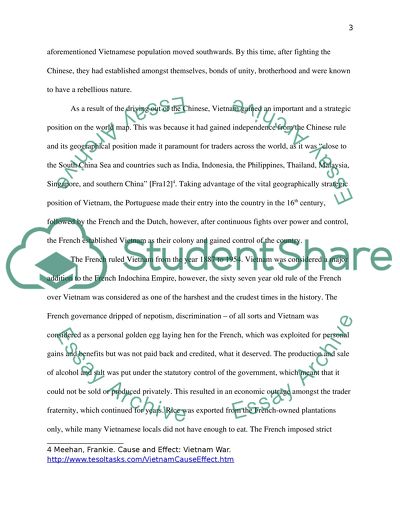Cite this document
(“Causes of Vietnam War Research Paper Example | Topics and Well Written Essays - 2000 words”, n.d.)
Retrieved from https://studentshare.org/history/1449395-causes-of-the-vietnam-war
Retrieved from https://studentshare.org/history/1449395-causes-of-the-vietnam-war
(Causes of Vietnam War Research Paper Example | Topics and Well Written Essays - 2000 Words)
https://studentshare.org/history/1449395-causes-of-the-vietnam-war.
https://studentshare.org/history/1449395-causes-of-the-vietnam-war.
“Causes of Vietnam War Research Paper Example | Topics and Well Written Essays - 2000 Words”, n.d. https://studentshare.org/history/1449395-causes-of-the-vietnam-war.


